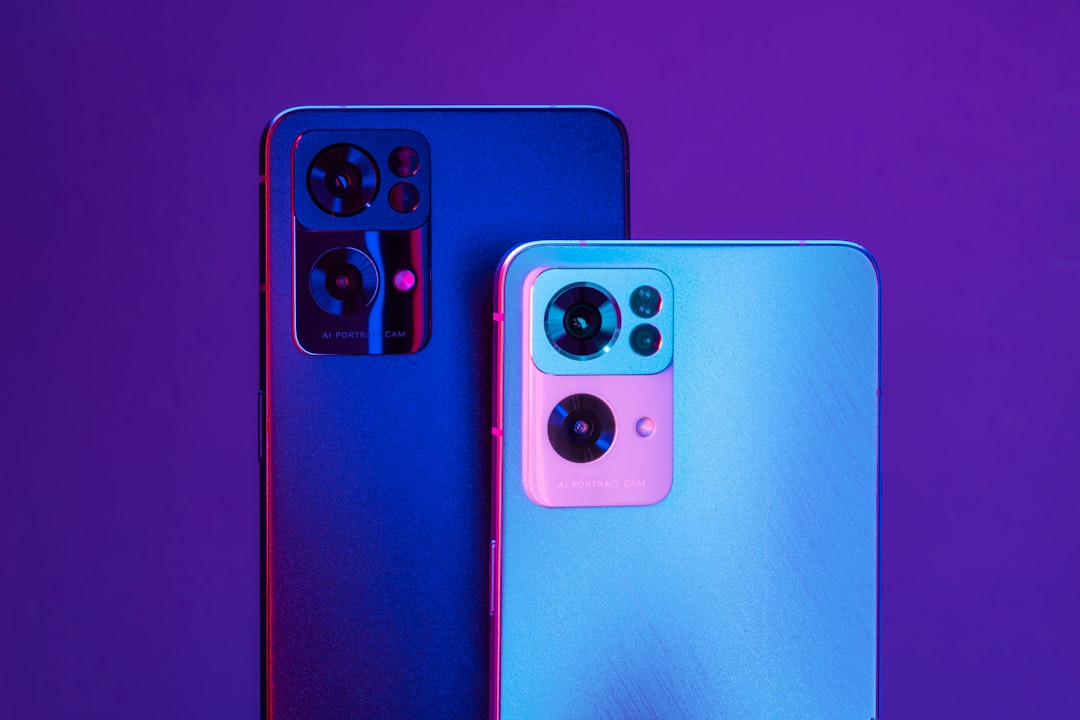Floridians have powerful tools to combat robocalls through state laws and apps like TrueCall and Hiya. These regulations allow users to block unwanted calls, file complaints, and protect their privacy. Apps use AI and databases to identify spam, log activities, and contribute to anti-spam efforts, ensuring a quieter communication experience in compliance with Florida's robocall laws.
Tired of unwanted robocalls interrupting your day in Florida? You’re not alone. These automated calls, often illegal under Florida laws, are a persistent nuisance. Fortunately, a range of apps offer effective solutions. From blocking and filtering to reporting, this guide explores the best Florida apps to combat robocalls, empowering you to reclaim control over your phone lines. Discover legal protections, learn how to customize settings, and track call activity to reduce unwanted interruptions once and for all.
Understanding Robocalls and Florida Laws

Robocalls, automated telephone calls from unknown numbers, have become a ubiquitous and often unwanted part of modern communication. These calls, driven by marketing or debt collection purposes, can disrupt daily life. In Florida, like many other states, robocalls are regulated by laws aimed at protecting residents from intrusive phone marketing practices.
Florida’s robocall laws are designed to give consumers control over their phone lines. The state has implemented measures allowing individuals to register complaints and block unwanted calls. These regulations reflect a growing awareness of the impact of excessive robocalls on mental health and personal privacy. Understanding these laws is crucial for Floridians looking to mitigate the disruption caused by unsolicited automated telephone marketing.
Common Apps to Block Automated Calls

In today’s digital era, robocalls have become a persistent nuisance, but Floridians have options to reclaim their phone lines from unwanted automated calls. Several apps are designed specifically to combat this issue by identifying and blocking robocallers. One popular choice is TrueCall, which uses advanced AI technology to detect and filter out spam calls, including those made in violation of Florida’s robocall laws. Another widely used app is Hiya, offering a comprehensive database of known spam numbers and real-time call blocking.
These applications not only protect users from intrusive robocalls but also provide peace of mind by alerting them to potential scams or fraudulent activities. With the help of these tools, Floridians can navigate their way through the maze of regulations surrounding robocalling and ensure they remain in control of their communication channels.
Legal Protections Against Unwanted Calls

In Florida, as in many other states, there are robust legal protections against unwanted calls, particularly robocalls. The Telephone Consumer Protection Act (TCPA) at the federal level and the Florida Telemarketing Act at the state level regulate how businesses can contact consumers via telephone. These laws make it illegal for companies to place automated or prerecorded calls to individuals without their prior express consent. Consumers in Florida have the right to file complaints against violators, seeking damages and blocking future calls from the same source.
The Florida Attorney General’s Office actively enforces these robocall laws and works to protect consumers from fraudulent or nuisance calls. It offers resources and guidance on how to recognize and report illegal telemarketing practices, ensuring that Floridians can enjoy peace of mind when answering their phones.
Installing and Customizing Call Filters

Installing and customizing call filters is a straightforward process with many Florida robocall apps. Once downloaded, these applications integrate seamlessly into your phone’s settings, allowing you to manage incoming calls according to your preferences. Users can create custom lists of allowed and blocked numbers, ensuring that only desired contacts reach their line. This level of customization is vital in navigating the complex landscape of robocall regulations under Florida law, which aims to protect residents from unwanted telemarketing interruptions.
By fine-tuning these settings, individuals can rest assured that legitimate calls from friends, family, or trusted businesses will still get through while blocking high-frequency robocallers. Many apps offer machine learning capabilities, automatically adapting to identify and filter out new types of spam calls. This proactive approach not only enhances privacy but also contributes to a quieter, more peaceful communication experience in the Sunshine State.
Tracking and Reporting Robocall Activity

In Florida, tracking and reporting robocall activity is governed by state laws designed to protect consumers from unwanted telephone solicitations. Several apps have emerged that utilize advanced technologies to identify and block robocalls, providing users with a layer of protection against these intrusive calls. These applications often come equipped with features that allow individuals to log and report suspicious or illegal robocall attempts.
By tracking robocall patterns, users can contribute valuable data to anti-spam efforts. Florida’s laws emphasize the importance of consumer privacy and consent, ensuring that any reporting is done transparently and in compliance with these regulations. This collaborative approach not only helps in curbing robocalls but also empowers residents to take charge of their communication experiences.






